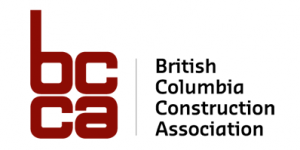Construction File:
Job Order Contracting
To support public owners in their efforts to hold themselves accountable to taxpayers through fair open, and transparent procurement practises, the BCCA offers Thresholds for Procurement of Publicly Funded Construction policy.
The BCCA policy recommends that the following thresholds should apply to all publicly funded construction projects:
- Any construction opportunity with an estimated value of less than $25,000* should be put out for bidding to a reasonable and cost-effective extent.
- Any construction with an estimated value of between $25,000 and $100,000* must have bids solicited by one of the following means:
- Opportunities posted on and industry platform such as BidCentral (and or BC Bid) for an open public bidding process; and/or
- An invitation shall be extended to all contractors on the registry of pre-qualified contractors that meet the criteria for the specific project.
- Any construction opportunity with an estimated value over $100,000* must be advertised on an industry platform such as BidCentral (and or BC Bid) in a fair, open and transparent public process.
- The solicitation of contractors for the establishment of a registry of pre-approved contractors must be in a manner that is appropriate to the value, complexity and profile of the business opportunity, with the following requirements;
- Must be obtained through an opportunity posted on and industry platform such as BidCentral
- Opportunities shall be solicited at regular intervals not to exceed one year.
- The opportunity for a contractor to be added to a registry of pre-qualified contractors shall be provided continuously.
*value not limited to but including service, maintenance, small projects and capital projects. For the MUSH sector this threshold is $200,000 under Trade Agreements but BCCA would recommend a policy at $100,000.
The construction industry is very aware that today’s public owners are challenged by resource limitations, but reminds owners that short-cut procurement solutions such as Job Order Contracting (JOC) can further degrade a project’s success through the loss of fair and open process. After the initial competition for services, the work is performed exclusively by the successful contractor and their select subcontractors and suppliers. This often continues for a period of many years, reduced transparency and competition for services.
JOC advocates claim that projects are completed faster and cost less, while the quality of the work is equal to or higher than that of projects done using design-bid-build. There is no evidence to support this outcome, and in fact the BCCA believes that JOC procurement strategies result in higher cost or lower quality, or both. Time savings are due exclusively to modifications in the procurement process, and are in no way attributable to a reduction of the actual time for construction.
JOC could potentially expose public owners to any or all of the risks identified in the Auditor General for Local Government’s report on Town of Rossland:
- Lack of controls, oversight, clear policy, and documentation.
- Risk of corruption.
- Questionable value for money.
- Inadequate protection of the taxpayer’s interests.
To help public owners enter confidently into any procurement process, the BCCA recommends two key steps:
- Choose contractors via a qualifications-based selection process.
The ideal approach is to establish a pre-qualified list of contractors as the basis for the awarding of future contracts. Refer to BCCA Policy on Thresholds for our recommended guideline on how to maintain a registry of pre-approved contractors in a fair, open and transparent manner. - Retain the services of Construction Managers.
Construction managers can solicit bids from individual trade contractors for each project by invitation (see BCCA’s guide for Construction Management here). Choose your Construction Manager well, based on qualifications and experience. Limit the term to two years at a maximum.
These steps will protect the public interests through:
- Open book budgeting, scheduling and tendering in accordance with best practices.
- Generate competitive tendering and assure value for money.
- Manage the risks identified by the Auditor General for Local Government in the Town of Rossland Report.
An economic and political system based on freedom of enterprise provides the best value for BC’s tax payers. All levels of government have an innate responsibility to ensure public tendering is conducted in a fair, open and transparent manner for capital projects and maintenance to ensure value for money, versus initiating processes that limits competition and value.
For further information or assistance in procuring construction services for public projects, please refer to the BCCA website.


